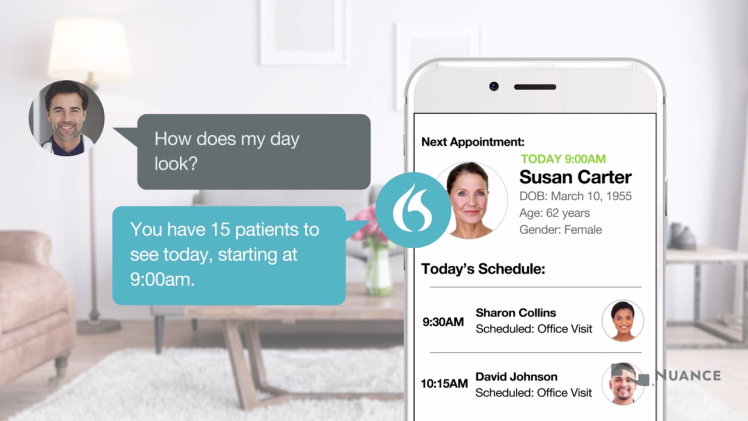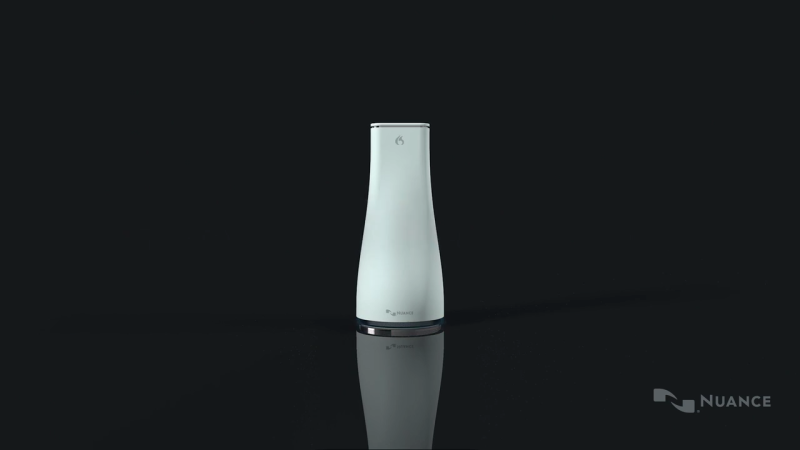Want smarter insights in your inbox? Sign up for our weekly newsletters to get only what matters to enterprise AI, data, and security leaders. Subscribe Now
Nuance Communications today unveiled its Dragon Medical AI assistant and smart speaker to help doctors do things like edit health records, review patient charts, and fill prescriptions with their voice.
Nuance has previously made virtual assistants for brands like Ford, General Motors, FedEx, and American Airlines.
Building on the Dragon Medical app for speech-to-text dictation, the AI assistant can access more than 150 electronic health record services. Beyond recording notes about a patient, the Dragon Medical assistant can serve up patient summaries, schedule appointments, dive into lab test results, or review pre-existing conditions or prescriptions.
In addition to interacting with physicians, nurses, and other clinicians through a smart speaker, the Dragon Medical AI assistant can be reached through Windows PCs and apps for iOS and Android smartphones.
AI Scaling Hits Its Limits
Power caps, rising token costs, and inference delays are reshaping enterprise AI. Join our exclusive salon to discover how top teams are:
- Turning energy into a strategic advantage
- Architecting efficient inference for real throughput gains
- Unlocking competitive ROI with sustainable AI systems
Secure your spot to stay ahead: https://bit.ly/4mwGngO
Final pricing for the speaker and the Dragon Medical assistant have not yet been determined, Nuance VP Peter Durlach told VentureBeat.
This is Nuance’s first smart speaker, but don’t expect to see it on store shelves alongside the new Amazon Echo anytime soon. The speaker, which has not yet been named, will be sold directly to health care providers through traditional enterprise channels, Durlach said.
The launch of the Dragon AI assistant is the latest recent effort to put natural language processing to work to improve human health. Last month, major medical associations backed the Human Diagnosis Project, which seeks to provide underserved patients with specialist care assisted by natural language processing.
A few weeks ago Doc.ai raised $2.3 million in the pre-sale of its Ethereum-based cryptocurrency Neurons. The company plans to make services that answer questions about an individual’s blood test results, genomics tests, or medicine prescribed by a doctor.



